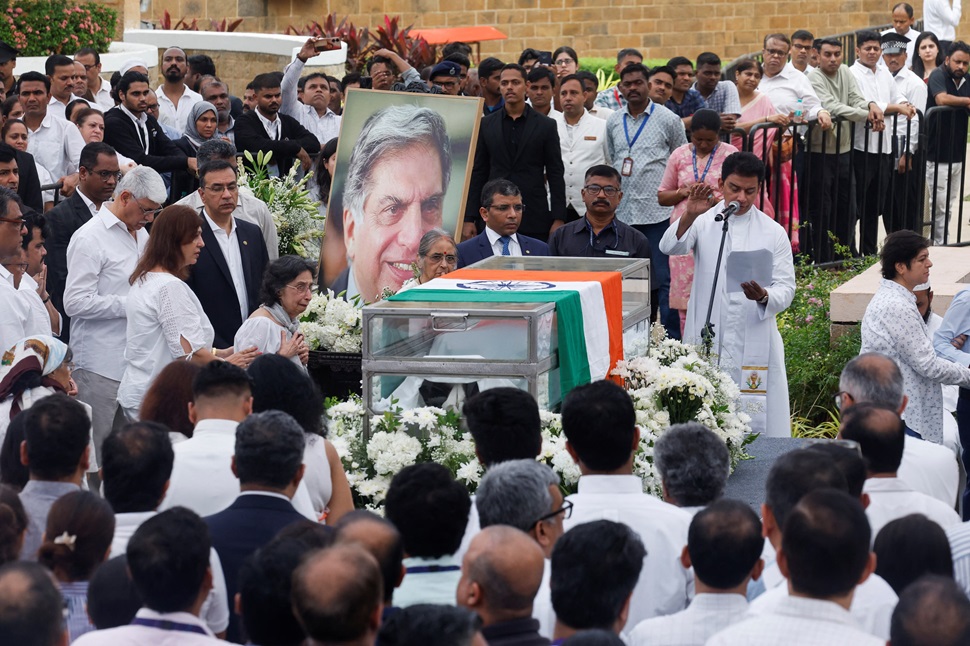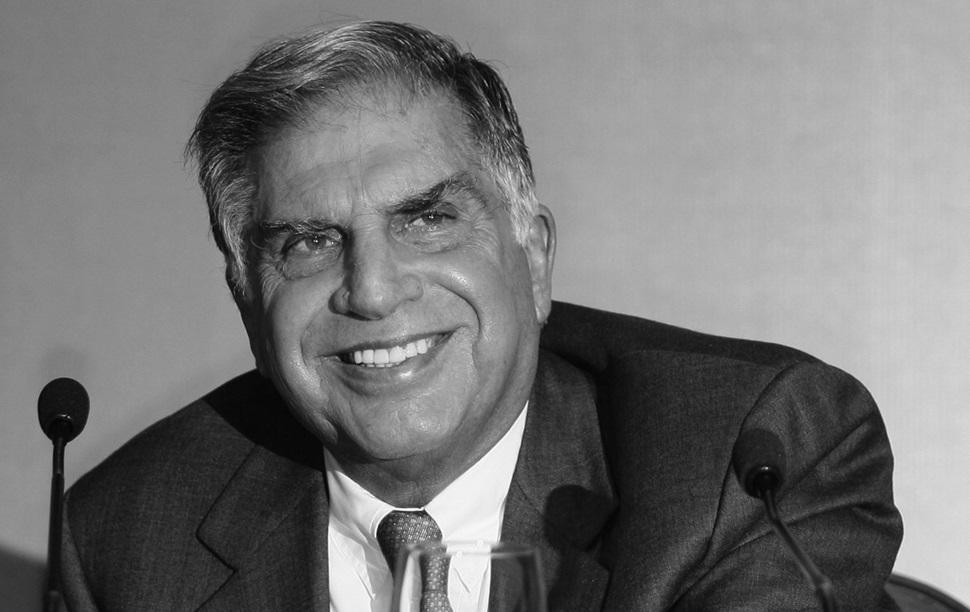When you think about Ratan Tata, the first words that come to mind are innovation, visionary leadership, and integrity. His legacy has indelibly impacted the entire business world. Chairman of one of India’s largest and oldest conglomerates, Tata Group, he transformed a traditional family business into a globally leading multi-conglomerate. His corporate achievements exceeded being a successful businessman; his philanthropic achievements empowered millions nationwide. This article is a tribute to him and honors the life and legacy of Ratan Tata, who passed away on 9th October 2024, leaving behind a beautiful legacy of leadership, humanity, and progress.
Early Life & Career
Ratan Tata was born on 28 December 1937 in Mumbai to the high-profile Tata family, famous for their business acumen and philanthropy. Following his parents’ separation, he spent his childhood under the tutelage of his grandmother. His educational background was mixed. He attended the Campion School in Mumbai and later studied B.Arch. at Cornell University. Ratan Tata also attended Harvard Business School, where he studied management, which provided him with the foundation to revolutionize the Tata Group.
Ratan Tata joined Tata Group in 1961, starting on the shop floor of Tata Steel. Over the years, he held various positions before taking over as chairman in 1991. His leadership came at a time when India was opening to the world’s markets, and Tata seized the opportunity to lead the company through an era of tremendous evolution.
Leadership at Tata Group
A new dawn started when Ratan Tata became the chairman of Tata Sons, Tata’s holding group. Risk-taking and an innovative mind marked the leadership style. He restructured the group, shedding non-core businesses and focusing on sectors that promised growth, such as steel, automotive, information technology, and communication.
From Family Business to Global Powerhouse
Under Ratan Tata, the Tata Group morphed itself from an India-centric company into a global giant. The major hallmark of this leadership during Ratan’s tenure was bold acquisitions that transformed the face of Indian industry.
Acquisitions: Jaguar Land Rover and Corus Steel
Tata Motors acquired Jaguar Land Rover in 2007 for a whopping $2.3 billion. It was a venture that most held as high-risk; however, Tata’s vision came good. JLR’s luxury car business was revived under Tata’s leadership. Similarly, in 2006, Tata Steel acquired Britain’s top steel maker, Corus Group, for about $12 billion. This leapfrogged Tata Steel to become one of the world’s top steel-producing companies.
Ratan Tata also wasn’t just a merger and acquisition specialist. Instead, he helped Tata Motors make the world’s cheapest car, Tata Nano – the affordable car for a million-plus Indians. While the Nano didn’t achieve commercial success due to mistakes with its marketing, it demonstrated Tata’s commitment to innovation and inclusivity.
Building a Global Brand
He dreamed of expanding Tata Group beyond India’s geographical boundaries. Under his command, Tata is present in more than 100 countries today, touching industries ranging from technology to consumer goods with its products and services.
His journey towards internationalizing Tata Group by making it synonymous with reliability, quality, and innovation around the world witnessed the inclusion of JLR and Corus as part of the company’s step towards internationalization through strategic acquisition.
Philanthropy & Social Impact
One of Ratan Tata’s biggest defining characteristics is his generosity to charities. Through the Tata Trusts, significant portions of his wealth are channeled into social causes, and he has emerged as one of India’s most significant philanthropists. His donations stretch from education to healthcare and rural development.
Educational Initiatives
Education, Ratan Tata thought, was the only way India would ever unlock its ‘true’ potential. Institutions such as IITs, IISc, and TIFR have received steady support from the Tata Trusts, which promote research and offer scholarships to poor students from deprived backgrounds. He had studied at Harvard Business School, and philanthropy was not unknown; in fact, he showed significant donations for funding leadership development programs.
Healthcare and Rural Development
Under health, Tata Memorial Hospital in Mumbai is one of Asia’s premier cancer treatment institutions. In addition to this, Tata Trusts have been working in support of rural healthcare initiatives, safe drinking water, and sanitation for millions in India.
Ratan Tata has worked for rural development, changing the face of many underdeveloped areas in India and making wholesome improvements in livelihood. It wasn’t for profit but a vision set on the qualitative growth of India.
Awards and Recognition
Ratan Tata has been a prolific businessman and citizen, commanding accolades galore in business and society. He received the Padma Bhushan, India’s highest civilian award, in 2000, followed closely by the Padma Vibhushan, the second most important award the country offers, in 2008. He has also been awarded the Order of the British Empire and the Carnegie Medal of Philanthropy for his exemplary business acumen and valuable humanitarian efforts worldwide.
Along with these business successes, Ratan Tata’s personal commitment to integrity, ethics, and humility earned him huge respect from his peers and the public at large. After retiring from active leadership in 2012, Tata continued to mentor new entrepreneurial minds and share their wisdom.

Legacy and Inspiration
The legacy that goes beyond his business performance belongs to Ratan Tata. Millions draw inspiration from his style of leadership-full of empathy, humility, and vision for a better future. Whether it is a decision on good governance or running a business performance-oriented by people rather than profit, Tata always put values first at the helm of leadership.
A Role Model for Future Generations
He is a great inspiration for entrepreneurs and leaders who sustain life lessons by Ratan Tata. His decisions weren’t just purely for the expansion and growth of business but for the betterment of society. With ethical leadership, long-term focus, and a lot of philanthropy, Ratan Tata showed the rest of the world how profit needn’t be out of step with purpose.
Even in his later years, Ratan Tata kept himself busy promoting start-ups and youth talent. He would even invest in promising ventures. His approach to life certainly did not rest on laurels but rather a quest for ways in which he could contribute to India’s growth and the welfare of its people.
Conclusion
Ratan Tata is an example of leading beyond the boardroom. He was more than a businessman; he was a visionary and well aware-of the importance of humanity in everything he did. Generations down the line will remember his contributions to Indian industry, philanthropy, and social causes. Saying goodbye to this extraordinary leader, we celebrate a life lived with integrity, passion, and commitment to making the world better.
Ratan Tata was a leader who went beyond the realm of business and left behind a legacy of hope, progress, and generosity that would inspire generations to come, as well as entrepreneurs and leaders as much as humanitarians. Ratan Tata passed away on 9th October 2024, ending an era, but long may his spirit guide the world to its good deeds for years to come.




